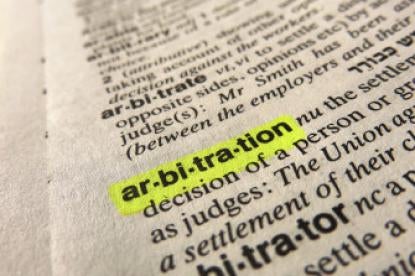Does the court or the arbitrator decide whether the parties to an arbitration agreement intended class arbitration where the agreement does not contain an express class action waiver? The California Supreme Court responded that there is no “one-size-fits-all” answer and the issue is a matter of contract determined by state law contract interpretation principles. Sandquist v. Lebo Automotive, Inc., S220812 (July 28, 2016).
However, the Court’s rationale in holding the arbitration agreement in this case left to the arbitrator the decision of whether the parties intended class arbitration makes it difficult to imagine a scenario where a court would be permitted to decide that issue absent express contractual language. Under Sandquist, where an arbitration agreement is “silent” on the issue of class arbitration, the arbitrator, not the court likely will decide whether the parties intended class arbitration.
Background
Timothy Sandquist worked as a salesperson at Lebo Automotive. He signed three arbitration agreements during his employment with substantively similar language, and none of them included an express class action waiver.
The agreements contained broad language stating that, except for claims under the National Labor Relations Act and for state disability, unemployment, and workers’ compensation benefits, “any claim, dispute, and/or controversy … arising from, related to, or having any relationship or connection whatsoever” with the employment relationship or “other association with the Company” would be arbitrated “exclusively.”
Sandquist brought a putative class action against the employer, alleging racial discrimination against non-Caucasian employees. The employer asked the trial court to compel arbitration. The court agreed and ordered individual arbitration. It also struck the class claims, relying on Stolt-Nielsen S.A. v. AnimalFeeds, Int’l Corp., 559 U.S. 662 (2010), and Kinecta Alternative Financial Solutions, Inc. v. Superior Court, 205 Cal.App.4th 506 (2012). These decisions held that where an arbitration agreement is “silent” about class claims, it could not be presumed that the parties consented to class arbitration because the fundamental differences between bilateral and class arbitration mean class arbitration (with its formal procedures and higher stakes) changes the nature of arbitration to such a degree that it “sacrifices the principal advantage of arbitration.” AT&T Mobility v. Concepcion, 563 U.S. 333, 348 (2011).
California Supreme Court Decision
A four-justice majority of the California Supreme Court disagreed that it was the trial court’s job to decide whether the parties agreed to class arbitration. Rather, it held that class arbitration is merely a procedural issue for the arbitrator to decide, not a “gateway” issue for the courts (relying on Green Tree Financial Corp. v. Bazzle, 539 U.S. 444 (2003), in which the U.S. Supreme Court could not resolve this issue conclusively as there was no majority opinion).
The U.S. Supreme Court has held that the parties to an arbitration agreement expect that a court, and not an arbitrator, will resolve certain important “gateway” disputes, such as whether an arbitration agreement is valid and whether it covers a particular claim. Further, the Federal Arbitration Act (9 U.S.C. § 1, et seq.) imposes a presumption that a court will decide gateway issues. On the other hand, the FAA presumes arbitrators will decide issues concerning the arbitration’s procedural mechanisms. See Howsam v. Dean Witter Reynolds, Inc., 537 U.S. 79, 83 (2002).
The California Supreme Court also held that:
-
public policy requires all doubts regarding arbitrability be resolved in favor of arbitration,
-
ambiguities in written agreements are to be construed against the drafter (here, the employer), and
-
the FAA does not compel a different result.
On the last point, the Court emphasized that the question of the availability of class arbitration does not concern a threshold matter, such as validity of the arbitration agreement itself and its applicability to the underlying claims. Rather, this entails only “what kind of arbitration proceeding the parties agreed to” (quoting Green Tree, 539 U.S. at 452).
Dissent
The dissent noted the Court’s decision eroded recent U.S. Supreme Court precedent rejecting “the idea that the availability of class arbitration is purely a matter of procedure,” as it fundamentally changes the nature of the arbitration and with whom the parties are arbitrating, given that absent class members are involved. The dissent also noted that the majority opinion deviates from every federal court of appeals to consider the issue.
Next Steps
Employers should review and consider updating their arbitration agreements to specify who decides whether class arbitration is permissible, particularly if they do not contain an express class action waiver.






 i
i

